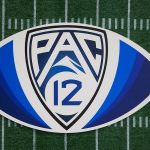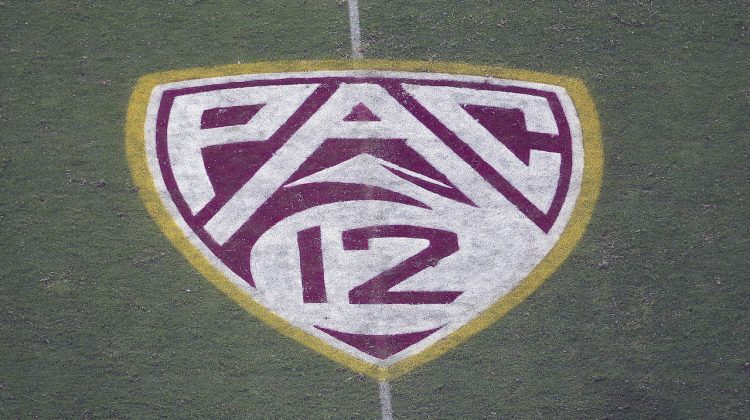Instant reaction to Pac-12 developments on the field …
1. The drought continues
We’ll start with Oregon, not because the Ducks earned top billing but because their fate alone is tied inexorably to the Pac-12’s playoff prospects.
Today is Nov. 21, and the conference is officially out of the College Football Playoff race. (At least it lasted this long. In several recent years, it was a CFP afterthought in early November.)
The Ducks have two losses after the 38-7 wipeout at Utah on Saturday evening. They were overpowered, outflanked, pushed around, and out-coached.
Yes, they can still win the North division, but they’re toast in the playoff race. No two-loss team has ever made the field, and we can assure you that the Pac-12 won’t be the first conference to do it.
So that’s that: For the fifth consecutive season, the Pac-12 won’t participate on the sport’s grandest stage.
The root cause of the drought remains unchanged: The conference simply doesn’t have a team good enough to finish 13-0 or 12-1.
The Ducks couldn’t beat Stanford, which has lost six in a row, and they didn’t belong on the field with Utah. They peaked in Week Two and, unlike Ohio State, for example, have not gotten materially better. That’s no way to make the CFP, which demands teams play their best in November.
In that regard, the 2021 season is like each of the previous four seasons for the conference: Loads of parity and no elite teams. So much eating your own but nobody standing alone.
The situation underscores the importance of playoff expansion. The Pac-12 cannot afford for the process to be delayed until 2026. It needs the 12-team format to start yesterday. Every year the Pac-12 gets left out, the impact ripples through its recruiting pipeline and a reversal of fortune becomes more difficult to achieve.
The five-year playoff absence also underscores the importance of the looming coaching hires at Washington and, especially, USC. The Pac-12 needs its best programs to operate as close to their potential as possible. The Trojans and Huskies must get their hires right, for themselves and the collective.
2. Two teams, one theme
The Hotline doesn’t often congratulate teams for success. That’s not our role or our goal. But we’ll make exceptions this week for Washington State (for becoming bowl-eligible) and Utah (for winning the South).
Both teams overcame difficult situations far beyond their control.
We’re not equating unimaginable tragedies — the deaths of two Utah players, Ty Jordan and Aaron Lowe — to the anti-vaccination stance of former Washington State coach Nick Rolovich.
But in both instances, the teams were forced to endure circumstances not of their own making. In both cases, they gathered strength from within the lockerroom and used the resulting bond to create special seasons.
The Cougars and Utes are currently playing with a level of inspiration, regardless of location or opponent, that’s unmatched within the conference.
Both deserve whatever success awaits.
3. Four teams, two themes.
We couldn’t help but notice the stark differences that played out in the marquee games of Week 12: Oregon at Utah and Arizona State at Oregon State.
No teams in the conference have pursued blue-chip recruits (i.e., four- and five-star prospects) more relentlessly in recent years than the Ducks and Sun Devils.
Yet both teams were beaten soundly by opponents, Utah and OSU, that take very different approaches to roster-building.
The Utes and Beavers have specific blueprints for success; they recruit players who fit their systems, many of them second-tier prospects or transfers looking to salvage their careers; and those players improve over the course of time.
It’s a shrewd, stability-driven approach to success.
Oregon has won back-to-back conference titles and could make it three in a row, so Mario Cristobal’s recruiting strategy cannot be faulted.
Arizona State, on the other hand, might want to consider a new leadership model, so to speak. The four-loss Sun Devils wagered so much on this season and are currently no better off than in the past.
Herm Edwards is 16-14 in conference play through four years (with one game remaining).
His predecessor, Todd Graham, was 23-13 at this point in his tenure in Tempe and did not have an NCAA investigation looming over the program.
4. Stability in Westwood?
There are three coaching vacancies in the Pac-12 at the moment. The potential for additional dismissals diminished somewhat with UCLA’s wipeout of USC.
With their 62-33 victory in the Coliseum, the Bruins (7-4) secured their first winning record in Chip Kelly’s four seasons.
Is that enough to guarantee him a fifth? We’re not prepared to make that assumption.
If the Bruins lose to Cal next weekend and finish 7-5, the administration could opt for a change based on what it perceives as a lack of enthusiasm for next season and the prospect of the Rose Bowl being two-thirds empty.
But in our opinion, a loss to the Trojans — they are without a permanent head coach and their best player and started a rookie quarterback — would have marked the end for the Kelly era.
It would have been an inexcusable loss. Instead, it turned into a memorable victory.
If the Bruins follow up with a win over Cal and finish 8-4, we suspect Kelly will be back for Year Five.
5. Montlake mystery
If anyone can explain Washington’s quarterback strategy, please let us know. We’re baffled, on two fronts:
— The Huskies chose to keep freshman Sam Huard on the bench in the loss at Colorado, presumably to preserve his redshirt season. Huard has played three games, allowing for one more appearance without blowing the year.
That seems misguided. Given the acceleration in player movement — either through the transfer portal or to the NFL Draft — it doesn’t make sense to allow potential eligibility in the 2025 season affect important personnel decisions today.
And if Huard or his family has insisted on preserving his redshirt, then why not play him at Colorado instead of holding Huard for next week against Washington State.
The Huskies needed two wins to become bowl eligible. They had to win in Boulder. If the coaches believe Huard can help next week, he should have been used this week to ensure that next week matters.
— Instead of playing Huard, they inserted Patrick O’Brien for two series in the first half — an odd move considering there is no need to see what O’Brien can do; he’s not a factor for next season.
Interim coach Bob Gregory said they went to O’Brien as part of a plan to create a “spark.” Except starter Dylan Morris had just led the Huskies on drives of 63 and 59 yards, the first ending with a fumble, the second with a field goal.
The offense looked reasonably competent. No spark was needed. And yet in came O’Brien, change for the sake of change, to run the offense for two drives. Both produced three-and-outs.
It was mystifying.
Support the Hotline: Receive three months of unlimited access for just 99 cents. Yep, that’s 99 cents for 90 days, with the option to cancel anytime. Details are here, and thanks for your support.
*** Send suggestions, comments and tips (confidentiality guaranteed) to pac12hotline@bayareanewsgroup.com or call 408-920-5716
*** Follow me on Twitter: @WilnerHotline
*** Pac-12 Hotline is not endorsed or sponsored by the Pac-12 Conference, and the views expressed herein do not necessarily reflect the views of the Conference.
Related posts:
 Hotline Mailbag – Defining Blue Bloods, Oregon Football Recruiting, more…
Hotline Mailbag – Defining Blue Bloods, Oregon Football Recruiting, more…
 Wilner Hotline – NFL Draft winners and losers, the Pac-12 perspective
Wilner Hotline – NFL Draft winners and losers, the Pac-12 perspective
 Wilner Hotline – Pac-12 stock report: ASU’s transfer help, Grand Canyon talent and a lack of QB clarity
Wilner Hotline – Pac-12 stock report: ASU’s transfer help, Grand Canyon talent and a lack of QB clarity
 Wilner Hotline – Pac-12 Networks analysis and media strategy
Wilner Hotline – Pac-12 Networks analysis and media strategy

